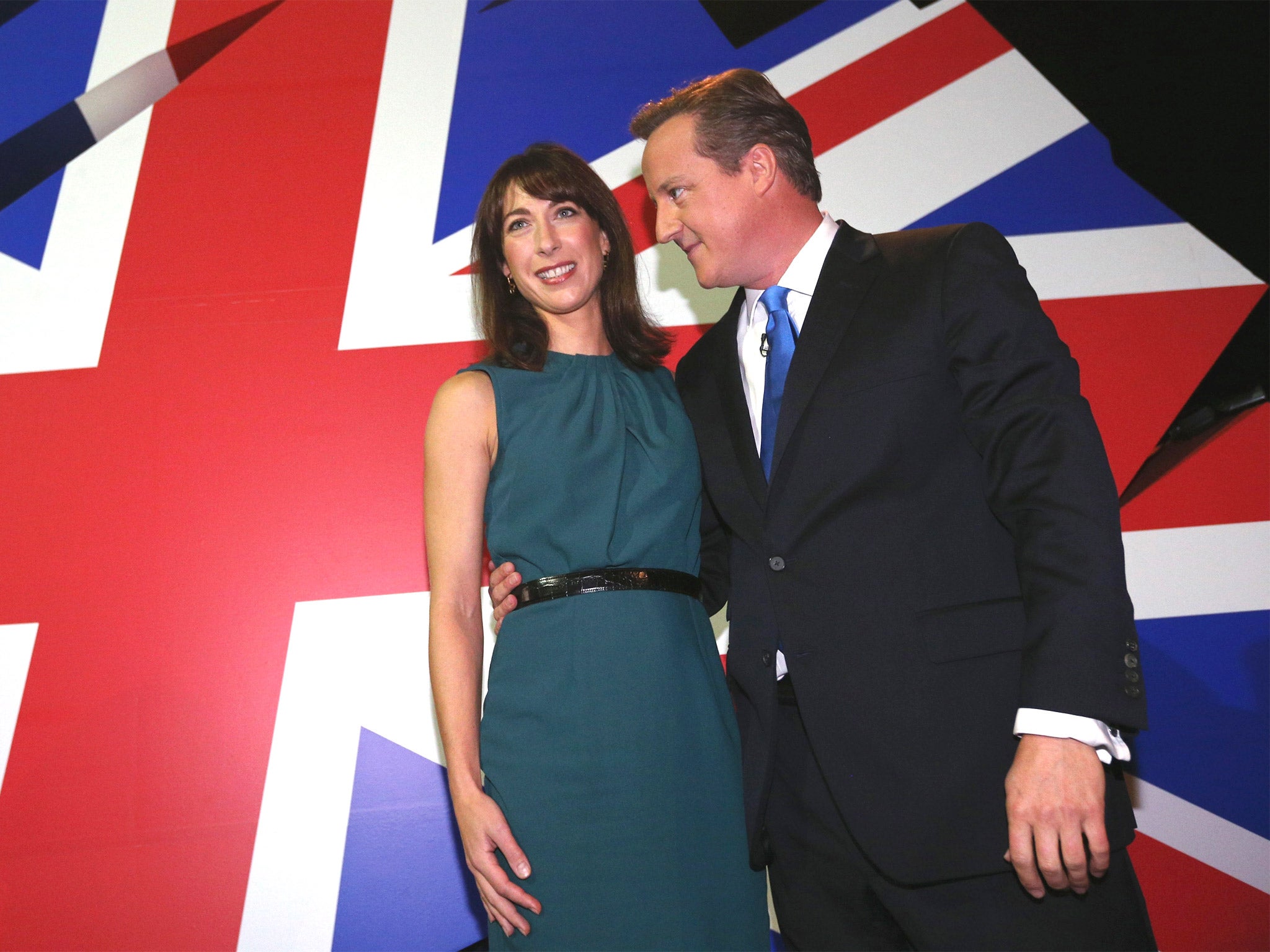PMs and prudes: What if it was David Cameron accused of having an affair in office?
Andy McSmith wonders how our media would react – and whether he would be able to keep his job


Your support helps us to tell the story
From reproductive rights to climate change to Big Tech, The Independent is on the ground when the story is developing. Whether it's investigating the financials of Elon Musk's pro-Trump PAC or producing our latest documentary, 'The A Word', which shines a light on the American women fighting for reproductive rights, we know how important it is to parse out the facts from the messaging.
At such a critical moment in US history, we need reporters on the ground. Your donation allows us to keep sending journalists to speak to both sides of the story.
The Independent is trusted by Americans across the entire political spectrum. And unlike many other quality news outlets, we choose not to lock Americans out of our reporting and analysis with paywalls. We believe quality journalism should be available to everyone, paid for by those who can afford it.
Your support makes all the difference.One thing that has become clear this week: British and French journalists do not understand each other. As the British political press corps watched President François Hollande's televised news conference, they could hardly believe that their French counterparts could ask polite questions about economics when there was juicy sex scandal lurking like l'éléphant dans la salle.
Yesterday, Agence France-Presse reported with an undertone of weary amusement the outrage in British media that the President's bedroom romps could be treated as less important than the future of his country's economy.
Since the Profumo scandal 50 years ago, British journalists have acquired the habit of rummaging aggressively in the private lives of elected politicians in a manner that would be considered intrusive and possibly illegal in other democracies. In France, during 13 of the 14 years that François Mitterrand was President, the existence of a daughter he had fathered out of wedlock was never reported. She was 20 years' old when the secret was broken. Mitterrand's wife and his former lover stood side by side at his funeral in 1996, flanked by his children, legitimate and illegitimate. French public opinion was stubbornly unscandalised.
Today, most French people appear to agree with their president when he pleads that his private life should be private, and if some French journalists are a little embarrassed by the deference their profession has shown to their wayward leader, they plead that they operate with a political culture that differs from Britain's. "Every country has its own traditions. We are still a republican monarchy," Alain Barluet, the French journalist who did put a politely worded question to President Hollande about the status of the first lady, told the BBC's Today programme. He added that in a news conference in the presidential palace, "it's not the decorum for anything else but polite exchange".
Now ask yourself how long David Cameron would survive in office if he left Samantha for another woman, then cheated on his mistress with a glamorous actress, riding to his assignations through busy London streets on a scooter – hoping to conceal his identity under a large helmet – as France's president is alleged to have done.
This contrast throws up two separate issues that are often confused – the first is whether the public has any right to know what the rich and powerful get up to behind the bedroom curtains; the other is whether someone who cheats on his or her spouse can be trusted in high office.
François Hollande is in no doubt that he is entitled to keep his sex life private, but in Britain there is a powerful suspicion that any privacy law that concealed the sexual misdemeanours of powerful figures would be used to conceal other, more sinister secrets.
While John Major was prime minister, he guarded the secret of his three-year affair with Edwina Currie, even to the point of taking legal action against the New Statesman that almost closed down the magazine.
One of Major's greatest blunders was to launch a campaign entitled "Back to Basics" which was interpreted as meaning that the Conservative Party stood for sexual morality. It provided the pretext for the red-top press to go into the private lives of everyone in his government, until scarcely a week went by without someone else being force to resign. None of the resignations can be said to have resulted in better government.
It would have been advisable, in retrospect, if Major had been open about his own past and had stood firm on the principle that sexual infidelity between consenting adults should not be a bar to public office. However, in the circumstances of the time, if his past peccadillo had been public knowledge, the Conservatives would never have chosen him to lead their party into an election.
When French voters receive the news of their president's philandering with utter indifference, while wanting to know how he proposes to sort out their economy, they are showing good sense that is sometimes lacking in our body politic.
Join our commenting forum
Join thought-provoking conversations, follow other Independent readers and see their replies
Comments